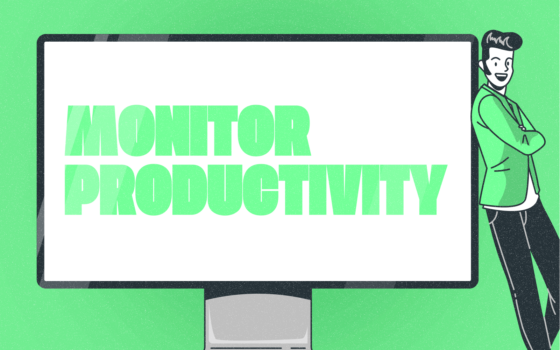Company Valentine’s Day Party
Introduction: The Significance of Company Valentine's Day Parties
In the realm of corporate culture, the Company Valentine's Day Party has emerged as a unique and sometimes controversial event. This celebration, typically held on or around February 14th, has become a staple in many organizations' social calendars. While some view it as a frivolous distraction, others see it as a valuable opportunity to foster team bonding, boost morale, and create a more inclusive workplace environment.
This comprehensive guide will delve into the various aspects of Company Valentine's Day Parties, exploring their potential benefits, challenges, and best practices for implementation. We'll examine how these events can impact employee engagement, workplace relationships, and overall company culture, while also addressing concerns and potential pitfalls that HR professionals and company leaders should be aware of.
The Evolution of Valentine's Day in the Workplace
Valentine's Day, traditionally associated with romantic love, has undergone a significant transformation in the corporate world. What was once considered a purely personal holiday has now found its way into office spaces, cubicles, and boardrooms across the globe. This shift reflects broader changes in workplace dynamics and the increasing emphasis on creating a more holistic and enjoyable work environment.
Historical Context
The concept of celebrating Valentine's Day at work isn't entirely new. In the mid-20th century, it wasn't uncommon for coworkers to exchange small tokens or cards on February 14th. However, these gestures were often informal and not organized by the company itself. As workplace culture evolved and companies began to recognize the importance of employee satisfaction and engagement, more formal Valentine's Day events started to gain traction.
The Rise of Corporate Valentine's Celebrations
In recent years, Company Valentine's Day Parties have become increasingly elaborate affairs. From simple card exchanges and candy distributions to full-scale events with decorations, catered meals, and planned activities, these celebrations have grown in both scope and significance. This trend aligns with the broader movement towards creating more engaging and enjoyable workplace environments, recognizing that happy employees are often more productive and loyal.
Benefits of Hosting a Company Valentine's Day Party
While some may question the relevance of Valentine's Day in a professional setting, there are several potential benefits to hosting such an event. When executed thoughtfully, a Company Valentine's Day Party can contribute positively to the overall work atmosphere and employee experience.
Enhancing Team Bonding and Camaraderie
One of the primary advantages of a Company Valentine's Day Party is its potential to strengthen relationships among coworkers. These events provide a relaxed setting where employees can interact outside of their usual work roles, fostering connections that can improve collaboration and communication in the workplace.
Boosting Employee Morale and Engagement
Celebrating holidays like Valentine's Day at work can significantly boost employee morale. It shows that the company values its employees beyond their professional contributions and is willing to invest in creating enjoyable experiences for them. This can lead to increased job satisfaction and higher levels of engagement.
Promoting Inclusivity and Diversity
When approached correctly, a Company Valentine's Day Party can be an opportunity to celebrate all forms of love and appreciation, not just romantic relationships. This inclusive approach can help create a more welcoming environment for all employees, regardless of their relationship status or personal beliefs.
Stress Relief and Work-Life Balance
Taking time out of the regular work routine to celebrate can provide a much-needed break for employees. It offers a chance to relax, have fun, and temporarily step away from work-related stress, contributing to a better work-life balance.
Potential Challenges and Concerns
While Company Valentine's Day Parties can offer numerous benefits, they also come with potential challenges that HR professionals and company leaders should be aware of and address proactively.
Romantic Overtones and Discomfort
The traditional association of Valentine's Day with romantic love can create discomfort for some employees. There may be concerns about unwanted romantic advances or feelings of exclusion among single employees. It's crucial to address these issues in the planning phase to ensure the event is welcoming and comfortable for all.
Cultural Sensitivities
In diverse workplaces, it's important to recognize that not all cultures celebrate Valentine's Day or view it in the same way. Some employees may have religious or personal objections to participating in such events. Sensitivity to these differences is key to creating an inclusive celebration.
Productivity Concerns
Some managers may worry that Valentine's Day celebrations could distract employees and decrease productivity. Balancing the benefits of employee engagement with the need to maintain work output is an important consideration.
Budget Constraints
Organizing a company-wide event can be costly, especially for smaller businesses or those facing financial challenges. Determining an appropriate budget and ensuring that the expenditure aligns with company values and resources is crucial.
Planning a Successful Company Valentine's Day Party
To maximize the benefits and minimize potential issues, careful planning is essential for a successful Company Valentine's Day Party. Here are some key considerations and best practices:
Setting Clear Objectives
Before diving into the planning process, it's important to establish clear objectives for the event. Are you aiming to boost team morale, improve interdepartmental relationships, or simply provide a fun break from routine? Having well-defined goals will guide your planning decisions and help measure the event's success.
Forming a Diverse Planning Committee
Create a planning committee that represents a cross-section of your organization. Include employees from different departments, levels, and backgrounds to ensure diverse perspectives are considered. This approach can help create an event that resonates with a broader range of employees.
Choosing Inclusive Themes and Activities
Opt for themes and activities that celebrate all types of relationships and forms of appreciation, not just romantic love. Consider themes like "Friendship Day" or "Gratitude Celebration" to make the event more inclusive. Activities could include team-building exercises, group games, or volunteer projects that focus on giving back to the community.
Addressing Dietary Restrictions and Preferences
If food is part of the celebration, ensure that there are options available for employees with various dietary restrictions and preferences. This includes vegetarian, vegan, gluten-free, and allergy-friendly options. Considerate food planning can go a long way in making all employees feel included and valued.
Communicating Clearly and Early
Provide clear communication about the event well in advance. This should include the purpose of the celebration, what employees can expect, and any guidelines for participation. Be sure to emphasize that participation is voluntary and that the event is meant to be inclusive of all employees.
Considering Remote and Hybrid Workers
In today's work environment, it's important to consider how to include remote or hybrid workers in the celebration. This might involve organizing virtual activities, sending care packages, or finding creative ways to make distant team members feel connected to the in-office festivities.
Creative Ideas for Company Valentine's Day Celebrations
To make your Company Valentine's Day Party memorable and engaging, consider incorporating some of these creative ideas:
Appreciation Stations
Set up stations where employees can write and share appreciation notes for their colleagues. This activity focuses on gratitude and teamwork rather than romantic love, making it more inclusive.
Charity Fundraiser
Organize a Valentine's Day-themed charity event or fundraiser. This could involve a bake sale, silent auction, or donation drive, with proceeds going to a cause chosen by employees.
Skill-Sharing Workshops
Host mini-workshops where employees can share their skills or hobbies with colleagues. This could include anything from origami to salsa dancing, providing a fun learning experience and fostering connections based on shared interests.
Team-Building Games
Organize team-building games with a Valentine's Day twist. This could include a "speed friending" event (similar to speed dating but focused on making new workplace connections) or a Valentine's-themed scavenger hunt.
Wellness Activities
Incorporate wellness-focused activities such as group yoga sessions, meditation workshops, or even a "self-love" seminar focusing on personal growth and self-care.
Addressing Potential HR Concerns
As with any workplace event, there are several HR considerations to keep in mind when planning a Company Valentine's Day Party:
Anti-Harassment Policies
Remind employees of the company's anti-harassment policies before the event. Make it clear that the celebration does not change workplace conduct expectations and that all interactions should remain professional and respectful.
Alcohol Policies
If alcohol is served at the event, ensure that there are clear guidelines in place. This might include limiting the number of drinks per person, providing ample non-alcoholic options, and arranging for safe transportation options.
Inclusivity and Non-Discrimination
Ensure that all aspects of the event are inclusive and non-discriminatory. This includes considering religious beliefs, cultural backgrounds, and personal preferences when planning activities and decorations.
Handling Complaints or Concerns
Have a clear process in place for addressing any complaints or concerns that may arise from the event. This could include designating specific HR personnel to handle issues confidentially and promptly.
Measuring Success and Gathering Feedback
After the Company Valentine's Day Party, it's important to assess its impact and gather feedback for future improvements:
Employee Surveys
Conduct anonymous surveys to gather employee feedback on the event. Ask about what they enjoyed, what could be improved, and whether they found the celebration valuable.
Informal Feedback
Encourage managers to have casual conversations with their teams about the event, gathering more nuanced feedback that might not come through in formal surveys.
Engagement Metrics
Look at engagement metrics before and after the event. This could include measures of employee satisfaction, teamwork effectiveness, or even productivity levels.
Participation Rates
Analyze participation rates and compare them to previous company events. High participation can be an indicator of a successful and well-received celebration.
Conclusion: Balancing Celebration and Professionalism
Company Valentine's Day Parties, when thoughtfully planned and executed, can be a valuable addition to the corporate calendar. They offer an opportunity to strengthen team bonds, boost morale, and create a more enjoyable work environment. However, it's crucial to approach these celebrations with sensitivity to diverse perspectives and a clear focus on inclusivity.
By addressing potential challenges head-on, maintaining clear communication, and aligning the event with company values and culture, HR professionals and company leaders can create a celebration that resonates positively with employees. The key is to strike a balance between fostering a fun, engaging atmosphere and maintaining a professional environment that respects all employees.
Ultimately, a well-executed Company Valentine's Day Party can contribute to a more positive, cohesive workplace culture. It's an opportunity to show appreciation for employees, celebrate the various forms of connection that exist within a workplace, and reinforce the company's commitment to creating a supportive and enjoyable work environment.
As with any aspect of workplace culture, the success of these events lies in their ability to reflect and enhance the unique values and dynamics of each individual organization. By approaching Company Valentine's Day Parties with thoughtfulness, creativity, and inclusivity, companies can turn this potentially contentious holiday into a meaningful celebration of workplace relationships and appreciation.


